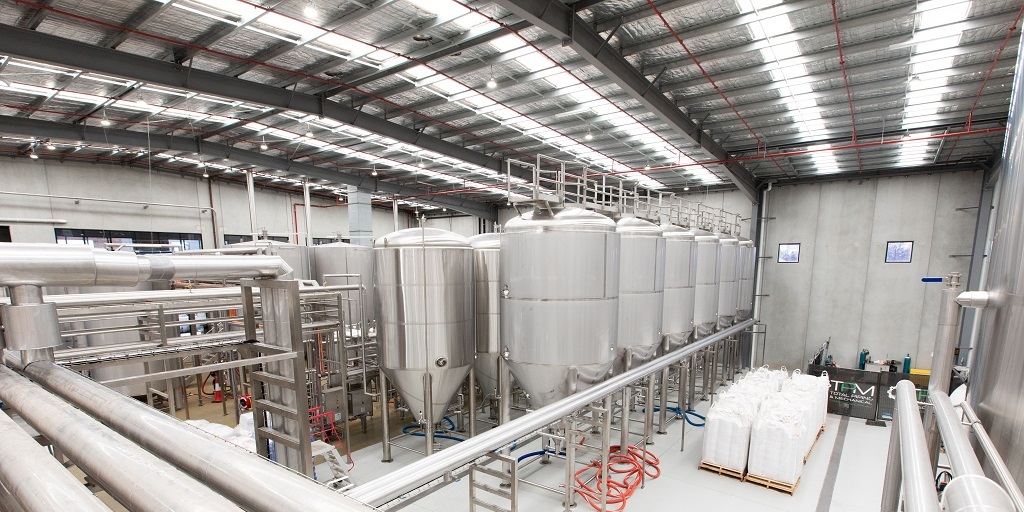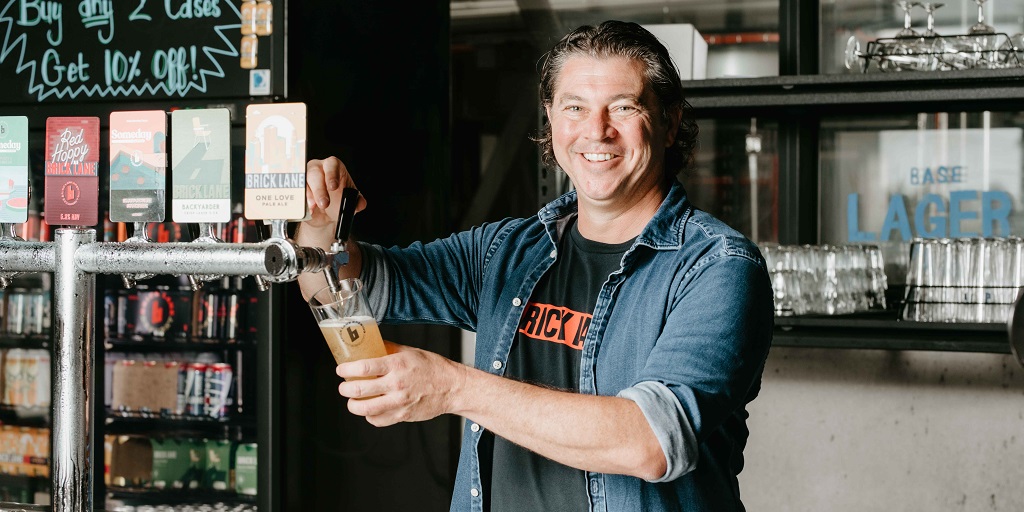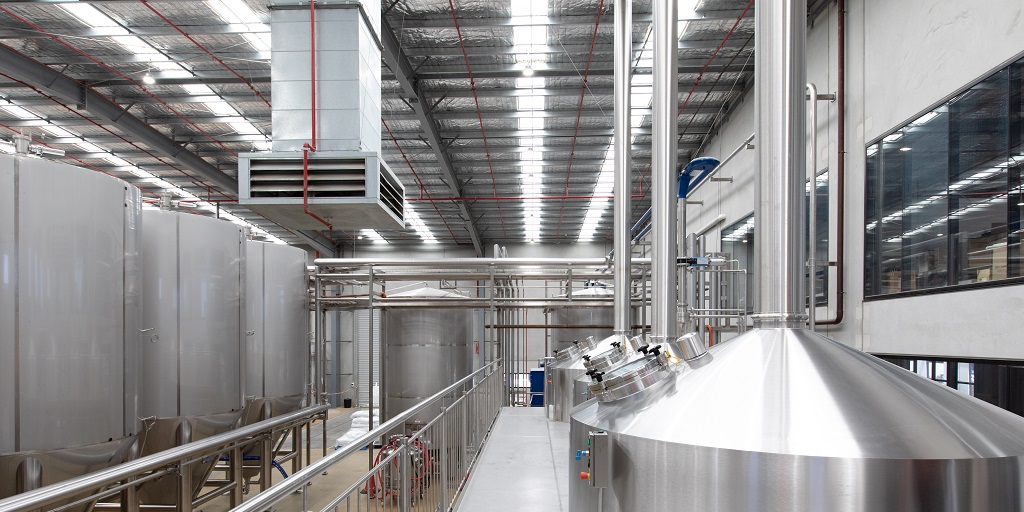
Brick Lane expansion project to triple capacity
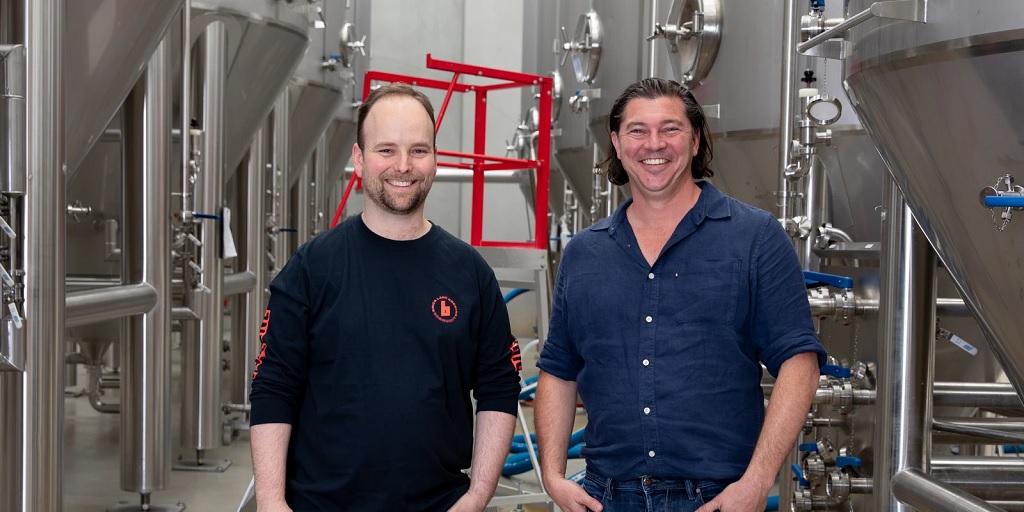
Brick Lane managing director Paul Bowker with head brewer Jon Seltin
Brick Lane Brewing is undertaking a major expansion project which will triple capacity.
The total investment in the upgrade will be around $50 million according to managing director Paul Bowker, with the help of a $1 million co-funding grant from the Manufacturing Modernisation Fund towards a $6.9 million section of project, dubbed ‘Pearl Jam’.
“Pearl Jam is all about the next phase of the brewery,” explained Bowker.
“We set out to build a brewery that has quality, flexible and scalability at its core and we did that from the beginning. We picked a location that had extra space to grow into over time, and picked equipment that could package in many different formats, and brew lots of different styles of beer and be upscaled as we needed to.
“About 12 months ago when we looked through what we’ve done in the first two years – and it’s only three years in August that we produced the first beer out of the brewery – everything has happened to plan but it’s happened even quicker than expected. So we sat down and looked at what the next five years looks like.”
Brick Lane is currently brewing approximately 8 million litres a year and the new project, that will see it expand its end-to-end production line, will bring wort production close to 30 million litres, and an initial production capacity of 20 million litres.
“It’s a matter of adding in that additional packaging and utilities and add ons effectively to get up to that ultimate capacity,” Bowker said.
Brick Lane currently brews in a 5,000sqm site, but there are options to spread out.
“And we have another piece of land of a similar size adjacent to the brewery, and we also have an option over another warehouse which is a similar size again. So there is no constraint geographically for us to spread out,” Bowker explained.
Brick Lane upgrades
The upgrades include 10 additional 400hL tanks and a 100hL Braukon brewhouse and these are being augmented by several other projects in the works.
“We’ve already upgraded the majority of our utilities, including boilers, CO2 and deaerated water, and installed a large scale ammonia plant for refrigeration, a huge step forward in terms of sustainability for us,” he said.
“A lot of breweries use Freon, but that’s fairly disastrous for the environment and it’s inefficient.
“Ammonia is very sophisticated, there’s a lot of safety protocols around it but once it’s installed it’s very efficient and it has zero CFC emissions.
“We’ve just installed that so we have more refrigeration capacity that we need for the new brewhouse.”
Upgrades to packaging lines are also underway, and Brick Lane has ordered a new keg filler which will allow them to fill 80 kegs an hour.
“The 100hL brewhouse is highly optimised and can brew 12 turns a day, on a 24-hour cycle,” Bowker said.
While the Braukon brewkit is being shipped from Germany, the fermenters are fully Australian made at Furphy Engineering in Shepparton, Victoria. Buying local – a value espoused by brewers about their own products – comes with some advantages, especially in a post-pandemic world.
“Furphy provided the best solution this time around, they are larger vessels, which comes with issues around transportation and shipping.
“Furphy did such a great job in the last cellar that we had a huge amount of confidence in them and they’ve been a very good partner.
“[Cost-wise they are] fairly competitive, because once you start moving into larger vessels they become very difficult to ship, so local producers can be competitive.
“Because they are made locally we can do factory acceptance testing, look at them, and work closely with the vendor. Manufactured overseas, it’s difficult to travel right now and you’re relying on sight acceptance testing, if everything isn’t quite right that can cause delays,” Bowker explained.
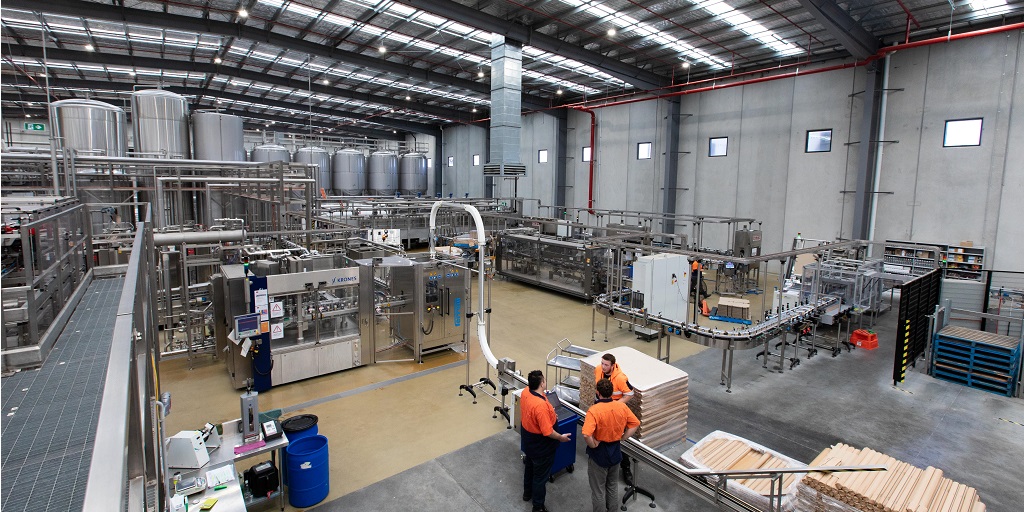
Growing pains
In terms of infrastructure, Brick Lane is well provisioned and planned, but one thing it could not plan for is the demands of staffing a brewery of its size.
“We set the business up like a much larger business than it is, so we have a good quality investment support, good quality board, and obviously management capability that goes with it and beyond a small craft brewery and better reflects a brewery of national scale.
“The key growing pains have been around increasing staffing and increasing teams and organisational structure, continually bringing people into the business,” acknowledged Bowker.
This was highlighted by Brick Lane earlier this year, and it has only been exacerbated with ongoing restrictions and border controls.
“The biggest issues are around the amount of qualified brewing and packaging staff in particular in Australia and the COVID period hasn’t helped that because the talent pool becomes completely local which constrains things.
“Through that COVID period we have effectively doubled the number of people working at Brick Lane and have moved to 24 hour shifts, and have had to recruit for that as well. It’s not easy.
“The other real challenge is that as the brewery becomes larger and larger and you’re on morning and evening and overnight shifts, that limits the talent pool as well.”
Hear more from Paul Bowker on the Beer is a Conversation podcast
In-house training can offset these issues somewhat, and it is something Brick Lane has been working on.
“We’ve put a lot of work in the way we set [HR] up, the type of people that come into the brewery, how we can train them and educate them, and have an organisational structure that puts in a really fair process for that shift work.
“We fund people to go through IBD and we have our internal programmes we develop through as well, that’s not just brewing and packaging – we have a sensory programme as well for people throughout the business.
“Recruitment is difficult at the moment, but what we have found is that we are able to offer something fairly unique. It’s not often in a brewer’s career that they get to work through the commissioning of a leading-edge brewery.”
The size and range of both contract and own-brand beers and other products that Brick Lane makes also makes it an attractive employment prospect Bowker said.
“We make a whole bunch of things for our contract partners that we don’t make under our own portfolio and may never make.”
“We make hard seltzer, we don’t have one under our own brand, at the moment there’s nothing in the plan to do that, but our brewers get to make seltzer. And we’ve deployed sleek cans in the brewery and we don’t use sleek cans.
“That was a task handled internally, it was an interesting project in adjusting all our equipment to handle sleek cans.
“There’s so much complexity and variety in the brewery. Having highly skilled staff is incredibly important, we make a lot of beer so there’s no margin for not being as good as we can be.”
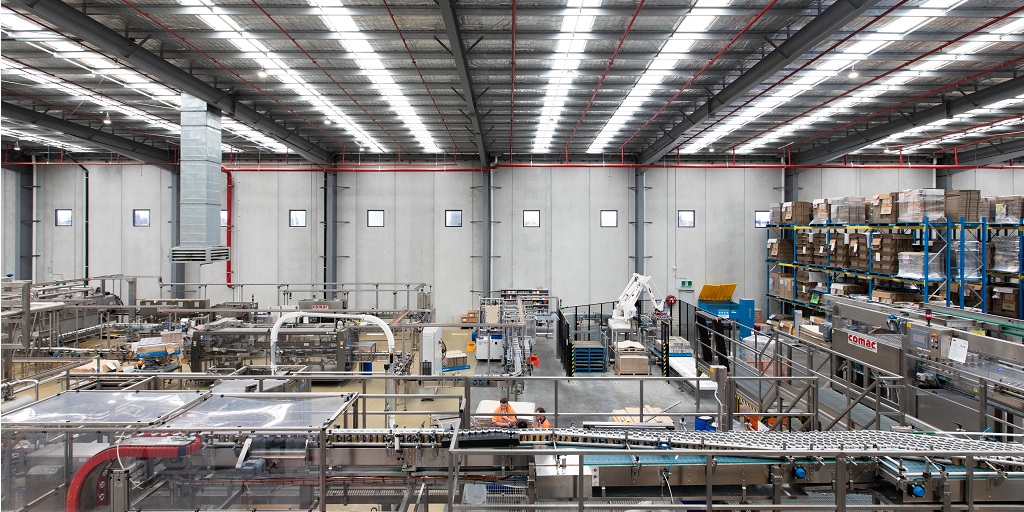
Funding
A big piece of the Brick Lane expansion puzzle has been funding – a key issue for any brewery when it gets to a certain size and the costs of upscaling begin to look out of reach without some outside intervention.
“We fund through debt and equity, which comes with balance sheet consequences whichever way you use it. So having a $1 million grant coming in as cash flow in accordance with the programme is a huge boost for us,” said Bowker, in relation to the Manufacturing Modernisation Fund grant.
“As a high growth business it chews up a lot of cash and to have a government grant to support the business, which is going not into operating costs but directly into a physical asset which will repay itself for years and years to come is a huge benefit to us and the broader economy.”
The only surprising thing about the MMF grants received by brewing industry businesses like Moon Dog for its seltzer dispenser and East Coast Canning for its digital printing technology, is that there weren’t more on the list, said Bowker.
“Out of 500 breweries, the fact that only seven received a grant was surprising,” he said.
“Brewing is capital intensive and this programme was designed to make capital intensive manufacturing industries more efficient longer term. Craft beer is in growth and it relies on being able to do things at a high degree of quality and efficiently, so the MMF plays perfectly to that.
“There will be lots of breweries investing in equipment in the next 12 months, but if what comes out of it is that smaller breweries see there is actually some softer funding out there we can access, then whatever the next grant is, maybe more people will apply.
“There are grants out there every day, all sorts of grants that people can access, and if smaller breweries aren’t, then they should.”

